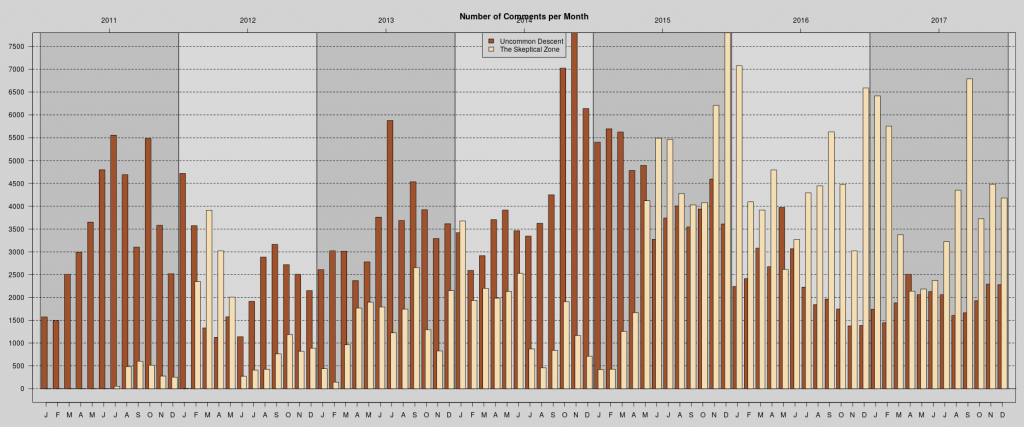In this post, I’ll be looking at chapter 6 of Dr. Edward Feser’s book, Five Proofs of the Existence of God, which deals with the nature of God, and I’ll be evaluating his arguments which purport to show that God is omnipotent, omniscient, good, capable of free choice and loving. I decided to begin by examining these “personal” attributes, because they’re the ones that really interest most people. Without these Divine attributes, any argument establishing that there exists an uncaused, fully actualized, necessary being, devoid of parts, whose essence is identical with its own act of existence could not be fairly called an argument for the existence of God, as such: it’s merely an argument for an Uncaused Cause.
My aim here is to evaluate Dr. Feser’s arguments in chapter 6, critically but fairly, in order to establish what they can tell us about God’s personal attributes, assuming that there exists an Uncaused Cause of the sort argued for by Feser in chapters 1 to 5 of his book. As we’ll see, Feser’s arguments for a personal Deity don’t prove much. All they establish is the following: (a) that everything depends on the Uncaused Cause, but not that it is capable of doing absolutely anything (or even anything which is consistent with its nature); (b) that universals exist in the Mind of the Uncaused Cause (a conclusion Feser argues for in chapter 3), but not that it actually knows any true propositions, let alone all true propositions; (c) that the Uncaused Cause is one-of-a-kind and free from defects, but not that it is benevolently disposed towards us; (d) that the Uncaused Cause is self-fulfilled and complete as a Being, but not that it is capable of free choice; and (e) that the Uncaused Cause brings about whatever is necessary for things to exist – whether it does so intentionally is another matter, however – but not that it cares about what happens to those things in the future, let alone that it cares about our future. After reviewing each section, I’ll discuss how Feser’s arguments could be strengthened, to make them more powerful. In addition, I’m going to throw in a bonus gift: I intend to show that Feser’s strong doctrine of the Purely Actual Actualizer (which he argues for in chapter 1) is false and untenable, before arguing that there is no need for classical theists to hold it: all they need to maintain is that God’s existence involves no actualization of potential (even if His activities do).





